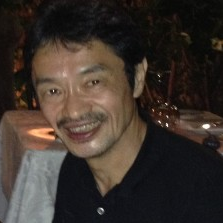The Intersection of Alzheimer’s Disease and Protein Quality Control
A special issue of Cells (ISSN 2073-4409). This special issue belongs to the section "Cells of the Nervous System".
Deadline for manuscript submissions: closed (31 July 2023) | Viewed by 145
Special Issue Editors
Interests: molecular oncology; Alzheimer's disease; prolyl isomerase; uridine phosphorylase; nuclear receptors; mesenchymal stem cells
Special Issue Information
Dear Colleagues,
Alzheimer’s disease (AD) is one of the most severe neurodegenerative diseases; it progresses slowly at first and gradually worsens. AD is characterized by Amyloid-b peptide Aβ plaques and tau neurofibrillary tangles (NFTs) accumulated in the brains of patients and it is one of the leading stepwise causes of dementia cases globally. Aberrant and misfolded proteins deposit in the brain of AD patients to form NFTs. Aβ is one of the NFTs which consists of a peptide containing 42/40 amino acids cleaved from the intramembrane proteolytic processing of amyloid precursor protein (APP) by β-/γ-secretase. The Aβ peptides aggregate and form soluble oligomers and protofibrils which eventually subside as insoluble plaques. Moreover, abnormal hyperphosphorylated tau protein is polymerized into paired helical filaments admixed with straight filaments forming neurofibrillary tangles. Some other misfolded protein was described in the presence of ubiquitin by the ubiquitin protease system (UPS) in paired helical fibrils, the major components of NFTs in AD brains. Ubiquitinated-protein-accumulation-related immunostaining is now used in diagnosing neurodegenerative diseases.
We invite all scientists working in neurodegenerative diseases to participate in this Special Issue. We welcome articles in a variety of genres and formats. We pay more attention to the similarities and differences between various neurodegenerative diseases, as well as the relevant signaling pathways, pathogenesis, clinical manifestations, and treatment options and approaches. It would be helpful to analyze and elucidate the underlying principles of this disease from the basis of structural biology.
Prof. Dr. Takafumi Uchida
Dr. Yang Xu
Guest Editors
Manuscript Submission Information
Manuscripts should be submitted online at www.mdpi.com by registering and logging in to this website. Once you are registered, click here to go to the submission form. Manuscripts can be submitted until the deadline. All submissions that pass pre-check are peer-reviewed. Accepted papers will be published continuously in the journal (as soon as accepted) and will be listed together on the special issue website. Research articles, review articles as well as short communications are invited. For planned papers, a title and short abstract (about 100 words) can be sent to the Editorial Office for announcement on this website.
Submitted manuscripts should not have been published previously, nor be under consideration for publication elsewhere (except conference proceedings papers). All manuscripts are thoroughly refereed through a single-blind peer-review process. A guide for authors and other relevant information for submission of manuscripts is available on the Instructions for Authors page. Cells is an international peer-reviewed open access semimonthly journal published by MDPI.
Please visit the Instructions for Authors page before submitting a manuscript. The Article Processing Charge (APC) for publication in this open access journal is 2700 CHF (Swiss Francs). Submitted papers should be well formatted and use good English. Authors may use MDPI's English editing service prior to publication or during author revisions.
Keywords
- neurodegenerative disease
- protein quality control
- protein complex structure
- ubiquitinated protein







